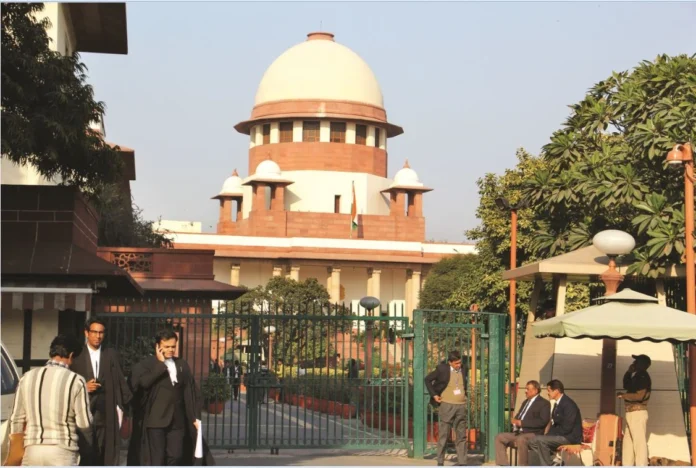The Supreme Court recently invoked it’s power under Article 142 of the Constitution and directed the Puducherry administration to regularise services of ad hoc 18 (15+3) lecturers, without any involvement of the Union Public Service Commission (UPSC).
The Bench of Justice Dipankar Datta and Justice Manmohan further directed the Central Vigilance Commission to conduct an in-depth investigation into the illegal appointment of ad hoc lecturers in the Union Territory and fix responsibility on those responsible (either in service or having demitted office) for the same.
CVC was directed to submit its report by May 14, 2025.
The top court of the country passed the order on a petition filed by the Central government and the Directorate of Technical and Higher Education, Government of Puducherry, challenging the Madras High Court order over appointment of three ad hoc lecturers (respondent Nos.1 to 3) at Motilal Nehru Government Polytechnic College, Puducherry.
The three lecturers had filed an application in the Madras Bench of Central Administrative Tribunal seeking regularisation (and all consequential benefits).
The Tribunal allowed the application on the grounds that the relief had been extended to other similarly situated lecturers and respondent Nos.1 to 3 ought not to be discriminated.
The verdict was later upheld by the Madras High Court.
Terming it a ‘very sorry state of affairs,’ the Apex Court noted that out of 51 sanctioned posts of lecturers in the Polytechnic College, 45 were being manned by incumbents appointed on an ad hoc basis.
Out of these 45 lecturers, 15 had earlier obtained orders from CAT for regularisation of services. The decision was upheld by the High Court and the Apex Court had decided not to interfere with the same in 2007, added the Bench.
It observed that the 15 lecturers remained to be regularised because the UPSC refused to accede to the request in that regard, on the basis that it would not be a party to any illegal appointee being regularised in service.
Referring to its 2007 verdict, which upheld the direction for framing of a scheme to regularise all casual lecturers, the Bench said the UPSC’s stand was indeed ‘audacious’.
Noting that respondent Nos.1 to 3 were appointed in 2005 and the relevant recruitment rules were introduced in 2006, the Bench expressed its disappointment over the failure of the petitioner-authorities to conduct the due recruitment process immediately after the introduction of rules.
The Apex Court further took into consideration the fact that the respondent-lecturers had been working since 2005 without a blemish and had the requisite qualifications for appointment as lecturers.
Citing Shripal vs Nagar Nigam, Ghaziabad case, the Bench observed that the decision in the State of Karnataka vs Uma Devi (3) could not be used as a shield to justify exploitative engagements persisting for years without the employer undertaking legitimate recruitment process to deny relief of regularisation.
It the past, UPSC had regularised appointments of ad hoc lecturers in other disciplines of other institutions in Puducherry, observed the top court of the country.
The Court further noted that
On the other hand,
Ultimately, as a reluctance on the part of the authorities to regularize services of the 15 lecturers who obtained favorable orders earlier could come in the way of the respondent-lecturers,
The Bench ultimately invoked its powers under Article 142 of the Constitution and ordered the Puducherry administration to regularise the services of all 18 lecturers (earlier 15 + 3 respondents), without the involvement of UPSC.
The top court of the country, however, directed the Union Territory administration to fill up the six vacant posts or other posts that might fall vacant in the Polytechnic College in accordance with the 2006 Rules.


